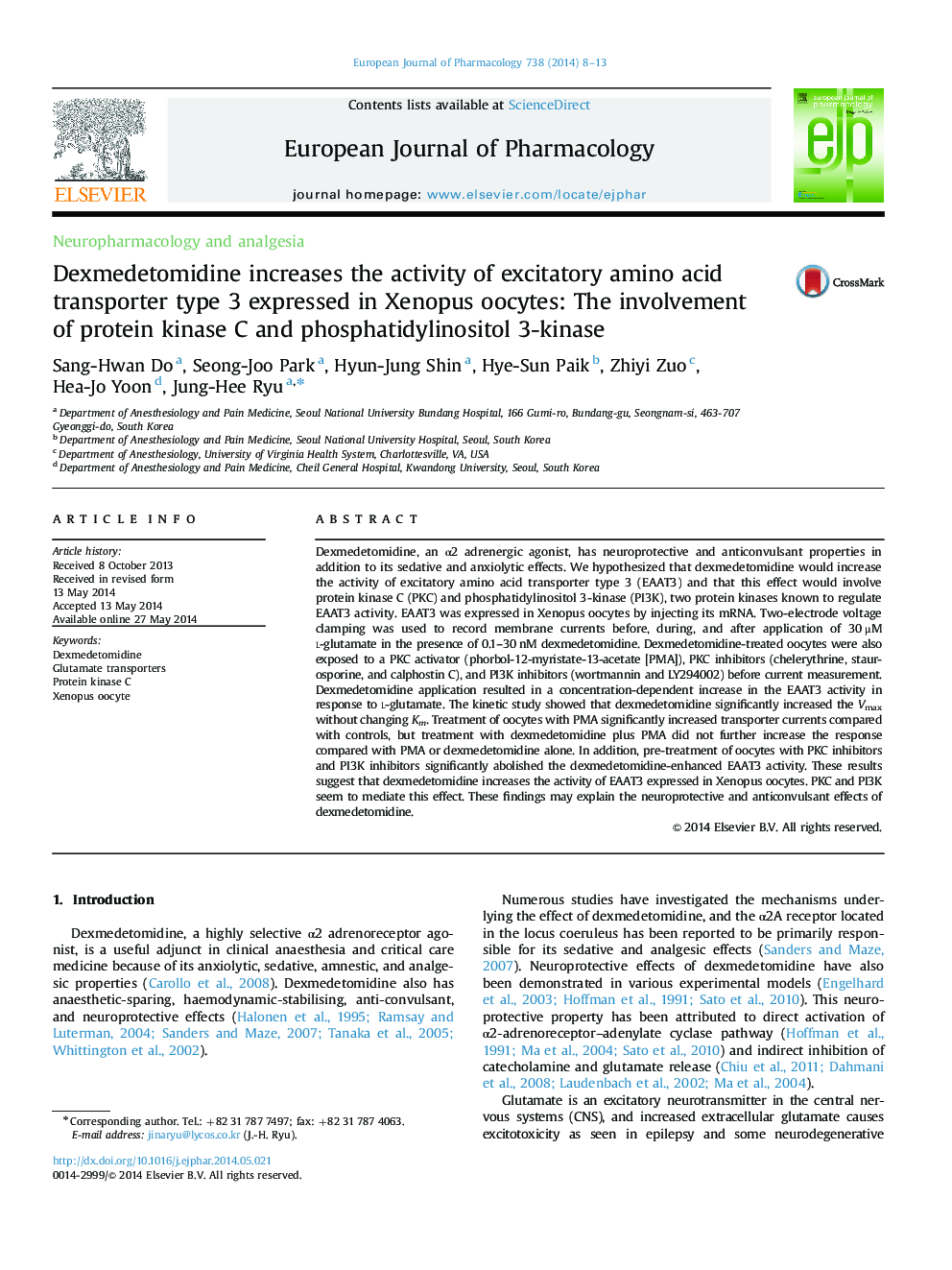| کد مقاله | کد نشریه | سال انتشار | مقاله انگلیسی | نسخه تمام متن |
|---|---|---|---|---|
| 5827903 | 1558943 | 2014 | 6 صفحه PDF | دانلود رایگان |

Dexmedetomidine, an α2 adrenergic agonist, has neuroprotective and anticonvulsant properties in addition to its sedative and anxiolytic effects. We hypothesized that dexmedetomidine would increase the activity of excitatory amino acid transporter type 3 (EAAT3) and that this effect would involve protein kinase C (PKC) and phosphatidylinositol 3-kinase (PI3K), two protein kinases known to regulate EAAT3 activity. EAAT3 was expressed in Xenopus oocytes by injecting its mRNA. Two-electrode voltage clamping was used to record membrane currents before, during, and after application of 30 μM l-glutamate in the presence of 0.1-30 nM dexmedetomidine. Dexmedetomidine-treated oocytes were also exposed to a PKC activator (phorbol-12-myristate-13-acetate [PMA]), PKC inhibitors (chelerythrine, staurosporine, and calphostin C), and PI3K inhibitors (wortmannin and LY294002) before current measurement. Dexmedetomidine application resulted in a concentration-dependent increase in the EAAT3 activity in response to l-glutamate. The kinetic study showed that dexmedetomidine significantly increased the Vmax without changing Km. Treatment of oocytes with PMA significantly increased transporter currents compared with controls, but treatment with dexmedetomidine plus PMA did not further increase the response compared with PMA or dexmedetomidine alone. In addition, pre-treatment of oocytes with PKC inhibitors and PI3K inhibitors significantly abolished the dexmedetomidine-enhanced EAAT3 activity. These results suggest that dexmedetomidine increases the activity of EAAT3 expressed in Xenopus oocytes. PKC and PI3K seem to mediate this effect. These findings may explain the neuroprotective and anticonvulsant effects of dexmedetomidine.
Journal: European Journal of Pharmacology - Volume 738, 5 September 2014, Pages 8-13